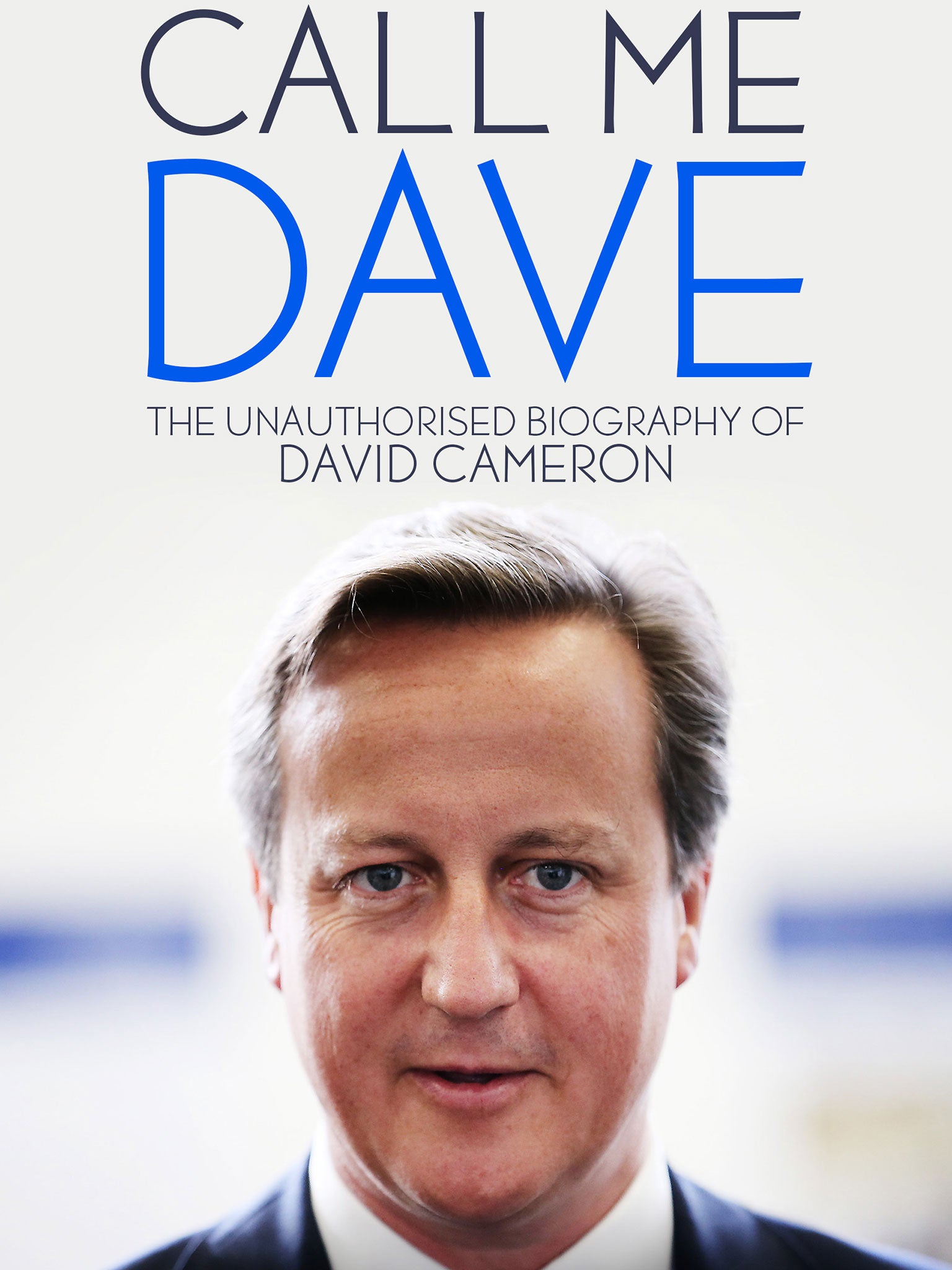Call me Dave: The Unauthorised Biography of David Cameron, by Michael Ashcroft and Isabel Oakeshott - Book review: A barrage of innuendo
The triviality and sensation-seeking has an insulating effect

Your support helps us to tell the story
From reproductive rights to climate change to Big Tech, The Independent is on the ground when the story is developing. Whether it's investigating the financials of Elon Musk's pro-Trump PAC or producing our latest documentary, 'The A Word', which shines a light on the American women fighting for reproductive rights, we know how important it is to parse out the facts from the messaging.
At such a critical moment in US history, we need reporters on the ground. Your donation allows us to keep sending journalists to speak to both sides of the story.
The Independent is trusted by Americans across the entire political spectrum. And unlike many other quality news outlets, we choose not to lock Americans out of our reporting and analysis with paywalls. We believe quality journalism should be available to everyone, paid for by those who can afford it.
Your support makes all the difference.This is a strange book, as everyone already knows. It becomes only more strange on reading it. Its serialisation was accompanied by two stories: one an unverifiable and implausible story about David Cameron’s student career; the other about how the Prime Minister offered Lord Ashcroft a junior ministerial post, which the peer turned down as beneath him.
The book itself contains many more lurid and seemingly implausible stories, often described as untrue or unverifiable by the authors and yet included regardless. “Our attempts to substantiate this tantalising tale drew a blank,” they say at one point. “The Tory party leadership categorically denied that grainy video footage showing a lookalike moshing at a music festival in the ’90s was him,” they report. One story is included, with a denial from its subject, and a sentence saying, “the source later retracted the claim, which could not be verified independently”.
I have never seen anything like it in a book purporting to be a serious account of an important political leader’s life. It is not as if the barrage of innuendo provides any understanding of the Prime Minister’s character. On the contrary, the triviality and sensation-seeking has an insulating effect. Cameron appears in this book as a distant and stilted figure, as if observed by a bunch of anarchists peering through the security barrier at party conference.
Reading the book does, however, shed some more accidental light on the relationship between Ashcroft and Cameron. Ashcroft has already put the preface online, so that everyone can come to a view on his motives in writing the book and the main revelation about himself, which is the claim that Cameron knew, before he said he did, about Ashcroft’s non-domiciled tax status. The second revelation, that Cameron, when he became Prime Minister, offered Ashcroft a post as a junior Foreign Office whip in the House of Lords, is also damaging. By then, it had become public knowledge that Ashcroft was a non-dom.
But the more I read the book, the better I thought it reflected on the Prime Minister. To have ditched Ashcroft suggests sound judgement, and to have done so with such light collateral damage required some political skill. Readers seeking a balanced assessment of Cameron, revealed by this year’s general election to have been one of the more successful holders of prime ministerial office, are referred to two alternative sources. One – generously acknowledged by Ashcroft in this book – is the biography by my colleague James Hanning and former colleague Francis Elliott, Cameron: Practically a Conservative. It contains a fine and rounded account of Cameron’s upbringing and early career.
The other is Anthony Seldon and Peter Snowdon’s Cameron At 10, published last month. This is a serious work of ultra-contemporary history, assembling a huge amount of detailed (and true) information, from inside Downing Street, and putting it on the record so that readers and future historians can make their own judgements on Cameron’s record in office.
Historians will notice Ashcroft’s book only as an example of how Cameron extricated himself from an entanglement that could have caused much more trouble than it did.
Join our commenting forum
Join thought-provoking conversations, follow other Independent readers and see their replies
0Comments